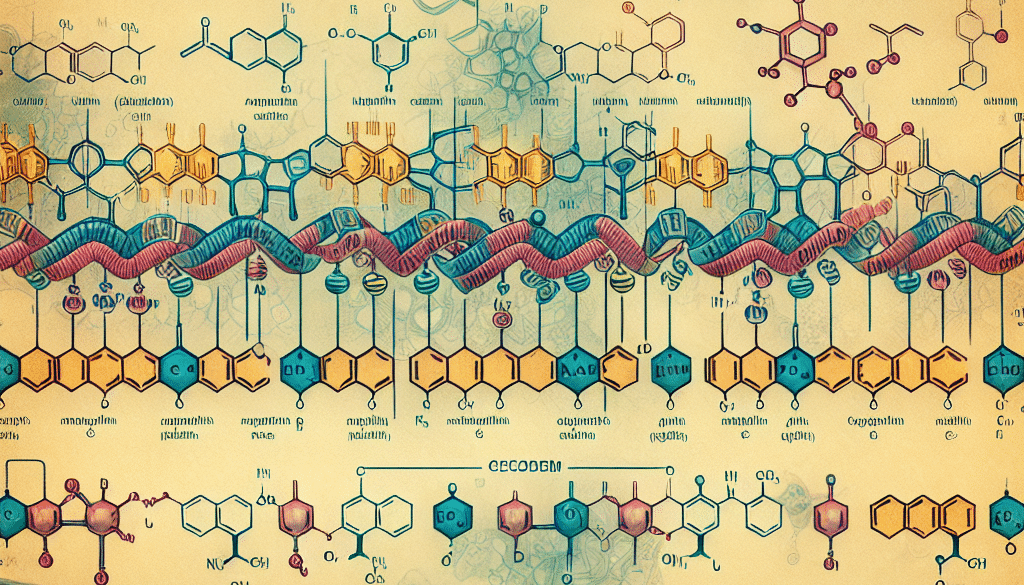Amino Acid Sequencing: Deciphering Proteins’ Secrets
-
Table of Contents
- Amino Acid Sequencing: Unveiling the Mysteries of Proteins
- The Importance of Amino Acid Sequencing
- Historical Milestones in Amino Acid Sequencing
- Modern Techniques in Amino Acid Sequencing
- Mass Spectrometry-Based Sequencing
- Edman Degradation
- Applications of Amino Acid Sequencing
- Case Studies and Success Stories
- Challenges and Future Directions
- Conclusion: The Power of Decoding Proteins
- Discover High-Quality Proteins with ETprotein
Amino Acid Sequencing: Unveiling the Mysteries of Proteins

Proteins are the workhorses of the cell, performing a vast array of functions that are critical for life. They are composed of amino acids, which are arranged in specific sequences that determine the protein’s structure and function. Amino acid sequencing is the process of determining the precise order of amino acids in a protein, and it is a fundamental technique in molecular biology that has revolutionized our understanding of biological processes. This article delves into the intricacies of amino acid sequencing and its profound impact on scientific research and medical advancements.
The Importance of Amino Acid Sequencing
Understanding the sequence of amino acids in a protein is akin to deciphering a coded message that holds the secrets to the protein’s role in the body. This information is crucial for several reasons:
- It helps in predicting the three-dimensional structure of the protein, which is essential for understanding its function.
- It allows scientists to compare proteins from different organisms, shedding light on evolutionary relationships and the conservation of biological functions.
- It aids in identifying mutations that may lead to diseases, thereby facilitating the development of targeted therapies.
- It enables the design of novel proteins with desired properties for industrial, medical, and research applications.
Historical Milestones in Amino Acid Sequencing
The journey of amino acid sequencing began in the 1950s with the pioneering work of Frederick Sanger, who developed the first method to sequence proteins. Sanger’s method, known as the Edman degradation, allowed for the sequential removal and identification of amino acids from the N-terminus of a protein. This breakthrough earned him the Nobel Prize in Chemistry in 1958 and laid the foundation for modern sequencing techniques.
Modern Techniques in Amino Acid Sequencing
Since Sanger’s time, amino acid sequencing has evolved significantly, with the advent of more sophisticated and high-throughput methods. The two main approaches used today are:
Mass Spectrometry-Based Sequencing
Mass spectrometry (MS) has become a powerful tool for protein sequencing. It involves ionizing protein fragments and measuring their mass-to-charge ratio to deduce the sequence. Techniques such as tandem MS (MS/MS) allow for the analysis of complex protein mixtures, making it possible to sequence entire proteomes.
Edman Degradation
Despite the rise of MS, Edman degradation remains a valuable method, especially for sequencing small peptides. It is a stepwise process that removes one amino acid at a time from the N-terminus, which is then identified using chromatography or other analytical techniques.
Applications of Amino Acid Sequencing
The applications of amino acid sequencing are vast and diverse, impacting numerous fields of study and industry:
- Biomedical Research: Sequencing helps in identifying proteins associated with diseases, leading to the development of diagnostic markers and therapeutic drugs.
- Pharmaceuticals: Drug design and development often rely on knowledge of protein targets obtained through sequencing.
- Agriculture: Sequencing can be used to improve crop resistance and nutritional value by modifying plant proteins.
- Environmental Science: Proteins involved in biodegradation and pollution control can be identified and optimized through sequencing.
Case Studies and Success Stories
One notable example of the impact of amino acid sequencing is the development of insulin treatments for diabetes. By sequencing the insulin protein, researchers were able to produce synthetic human insulin, which is now widely used to manage the condition. Another success story is the use of sequencing in the Human Genome Project, which has led to a deeper understanding of genetic diseases and the role of proteins in health and disease.
Challenges and Future Directions
Despite its successes, amino acid sequencing faces challenges such as the difficulty in sequencing membrane proteins and the need for more efficient and cost-effective methods. The future of sequencing lies in the integration of computational biology, which can predict protein structures and functions from sequence data, and the development of novel sequencing technologies that can handle larger and more complex proteins.
Conclusion: The Power of Decoding Proteins
Amino acid sequencing has been instrumental in advancing our knowledge of biology and medicine. By revealing the sequences of proteins, scientists have been able to uncover the molecular mechanisms of life, leading to groundbreaking discoveries and innovations. As technology continues to evolve, the secrets of proteins will become even more accessible, opening new frontiers in science and improving human health.
Discover High-Quality Proteins with ETprotein
If you’re looking for premium protein products, ETprotein offers an extensive range of high-quality, organic bulk vegan proteins and plant proteins. Their products are ideal for various industries, including nutraceuticals, pharmaceuticals, and food and beverage. With a commitment to non-GMO, allergen-free ingredients, ETprotein is your go-to source for all your protein needs.
About ETprotein:
ETprotein, a reputable protein Chinese factory manufacturer and supplier, is renowned for producing, stocking, exporting, and delivering the highest quality organic bulk vegan protein and plant proteins. They include Organic rice protein, clear rice protein, pea protein, clear pea protein, pumpkin seed protein, sunflower seed protein, mung bean protein, peanut protein etc. Their offerings, characterized by a neutral taste, non-GMO, allergen-free attributes, cater to a diverse range of industries. They serve nutraceutical, pharmaceutical, cosmeceutical, veterinary, as well as food and beverage finished product distributors, traders, and manufacturers across Europe, USA, Canada, Australia, Thailand, Japan, Korea, Brazil, and Chile, among others.
ETprotein specialization includes exporting and delivering tailor-made protein powder and finished nutritional supplements. Their extensive product range covers sectors like Food and Beverage, Sports Nutrition, Weight Management, Dietary Supplements, Health and Wellness Products, and Infant Formula, ensuring comprehensive solutions to meet all your protein needs.
As a trusted company by leading global food and beverage brands and Fortune 500 companies, ETprotein reinforces China’s reputation in the global arena. For more information or to sample their products, please contact them and email sales(at)ETprotein.com today.












